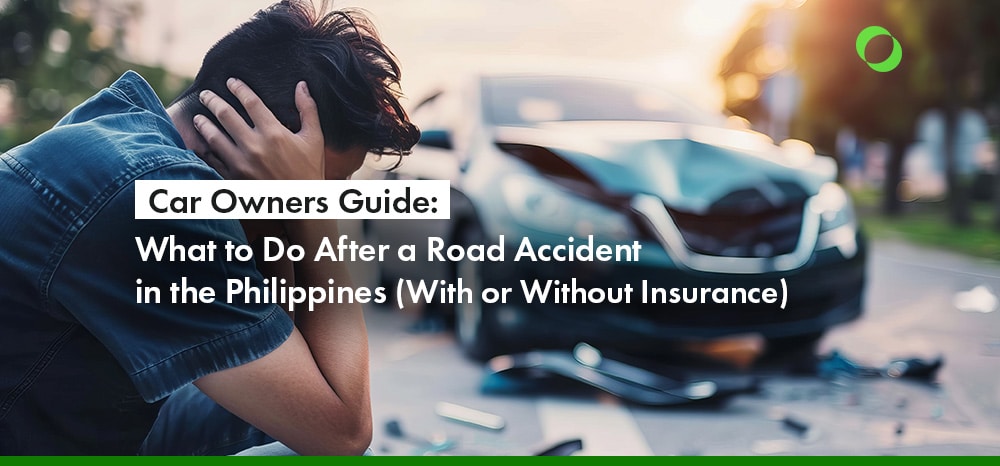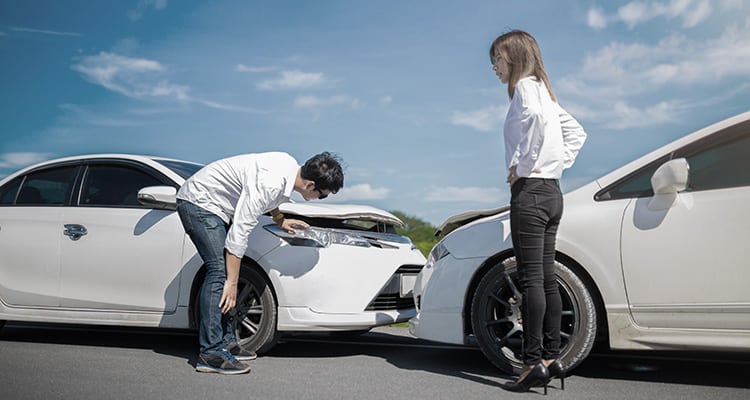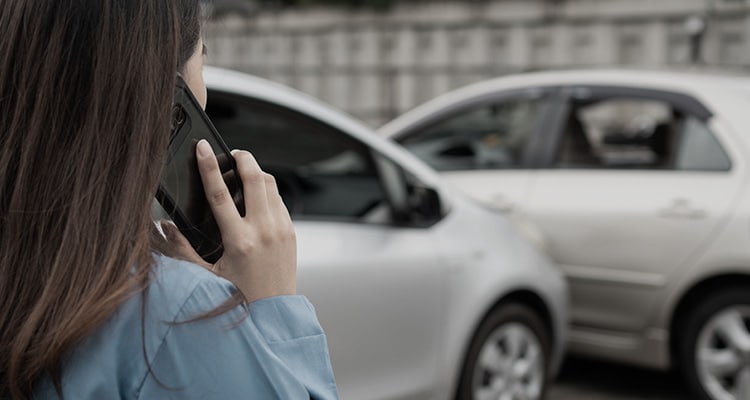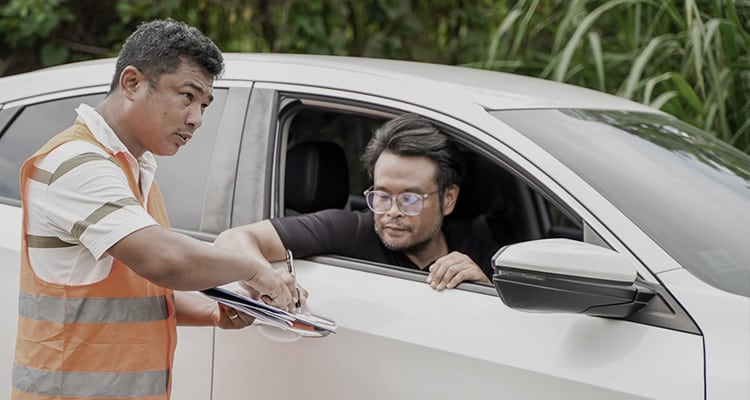Road accidents can happen unexpectedly, leaving drivers and passengers stressed and unsure of what to do next in their wake.
Whether you have insurance or not, knowing the proper steps can protect your safety, legal rights, and finances.
This car owners guide will walk you through the essential actions to take immediately after a car accident in the Philippines.
Steps to Take Immediately After a Car Accident
Here are the key steps after a car crash you should follow to stay safe and handle the situation properly:
Ensure Your Safety First
Your safety and that of your passengers comes first.
Check everyone for injuries and move to a safe location if possible. Turn on hazard lights and avoid standing in the middle of the road.
This helps prevent more accidents and makes it easier for rescuers to reach you.
Call Emergency Services if Needed
If there are car accident injuries, call 911 and seek medical attention, if needed.
For incidents involving other vehicles or property damage, report the car accident to the police or traffic authorities so it’s properly documented.
Exchange Information with Other Parties
Even if the accident seems minor, always exchange driver information because it is crucial for insurance and legal purposes:
- Full name and contact information
- Driver’s license number
- Vehicle plate number
- Insurance provider and policy number
Make sure the other party provides the same information as well.
Information You Should Gather at the Scene
After the incident, your priority is to document accident scene details. These records are important for insurance claims, police reports, and legal purposes.
Missing information can delay your claim or make it harder to prove your side of the story.
Here’s a car accident checklist you should gather:
- Full names and contact numbers of all parties involved
- Driver’s license numbers
- Vehicle plate numbers and registration details
- Insurance provider and policy number (if available)
- Accident scene photos of vehicle damage, road conditions, and surroundings
- Statements or contact details of witnesses
- Dashcam footage, if available
When to Contact Your Insurance Company
Once everyone is safe and the accident scene is documented, you should call your insurance company right away.
Many policies in the Philippines require you to notify your insurance provider immediately after an accident, usually within 24 to 48 hours.
Doing this ensures your insurance claim process starts without delays.
Your insurer will guide you on:
- What documents and photos to submit
- Whether you need a police report
- How to get your car assessed and repaired
- The next steps for filing a claim
The sooner you contact them, the faster you can file your insurance claim and the less likely you’ll face issues with coverage.
What to Do If You Don’t Have Car Insurance
Driving without car insurance in the Philippines can make accidents more complicated and costly.
This section of our Car Owners Guide walks you through the essential steps to take if you get into an accident and are uninsured.
File a Police Report
Report the accident to the nearest police station or traffic authority, especially if there are injuries or major property damage.
A police report is often required for settlements or legal proceedings.
Ensure You Have CTPL
While comprehensive insurance is optional, it’s mandatory to have Compulsory Third Party Liability (CTPL) insurance for vehicle registration and renewals in the Philippines.
CTPL covers injuries or death of third parties, so make sure your policy is active and ready to use.
However, it does not cover damages to your own vehicle or injuries to yourself or your passengers.
CTPL Coverage Details:
- Death Indemnity: Php 70,000
- Funeral Expenses: Php 30,000
- Medical Expenses:
- Hospital Room: Php 500 per day (up to 45 days)
- Laboratory Fees: Php 2,000
- Surgical Expenses: Up to Php 7,500
- Anesthesiologist Fees: Up to Php 2,500
- Permanent Disability: Up to Php 50,000
Note: These amounts are subject to the terms and conditions of your CTPL policy and may vary between providers.
Settle with the Other Party
If the damage is minor and both parties agree, you may settle on the spot. Make sure the terms are written, signed, and witnessed to avoid disputes later.
To reduce financial strain after an accident, it’s important to take proactive steps:
- Build an emergency fund for unexpected car repairs or settlements, just in case similar expenses come up in the future.
- Consider installment agreements when settling with another driver.
- If possible, get comprehensive insurance as soon as you can to prevent future risks.
What NOT to Do After a Car Accident
Knowing what not to do is just as important as post-accident safety steps.
As part of this car owners guide, we highlight common mistakes to avoid to protect your safety, legal rights, and potential insurance claims:
Don’t Admit Fault on the Spot
Even if you think the accident was your fault, avoid admitting fault at the scene.
Statements made in the heat of the moment can be used against you later in insurance claims or legal proceedings.
Stick to the facts when speaking to the other driver or authorities.
Don’t Sign a Quitclaim Too Soon
Avoid signing a quitclaim or settlement agreement at the scene without fully understanding the terms.
A quitclaim can waive your right to pursue further claims or compensation and may make you liable to your insurance company if it contradicts policy terms.
Always review the document carefully, preferably with car accident legal advice, before agreeing to any settlement.
Don’t Leave the Scene Without Reporting
Leaving the scene of an accident, especially if there are injuries or property damage, is illegal in the Philippines.
Always stay until authorities or police have documented the incident, or until you’ve exchanged information with the other driver if it’s a minor crash.
Don’t Forget to Notify Authorities
Even for minor accidents, it’s important to notify the PNP or local traffic authorities.
Reporting the incident ensures there is an official record, which may be required for insurance claims, legal matters, or future disputes.
Legal Responsibilities After a Car Accident in the Philippines
After a road accident, drivers in the Philippines have legal duties under national traffic laws and government regulations.
Failing to comply can lead to fines, penalties, or problems with insurance claims.
Stay at the Scene and Report to the Proper Authorities
Reporting is not only for insurance claims , it’s also a legal requirement.
Under Republic Act 4136 (Land Transportation and Traffic Code), drivers must not leave the scene of an accident except to call for help or report to the nearest officer.
If there are injuries, fatalities, or major property damage, they should immediately notify the Philippine National Police (PNP) or local traffic authorities.
Move the Vehicle to the Side of the Road
In Metro Manila, the MMDA mandates that vehicles involved in minor accidents be moved to the side of the road (if possible) to avoid obstructing traffic (MMDA Resolution No. 02-28).
Before moving, take photos and document the scene for evidence. Exchange information with the other party and notify authorities or your insurer.
Cooperate with the Authorities
Your cooperation with police, MMDA/PDRRMO officers, or LTO investigators is crucial after a car accident.
Providing accurate information, submitting your driver’s license, vehicle registration, and insurance details, and following their instructions can help resolve the situation properly.
Failing to cooperate may lead to traffic violation penalties under RA 4136, including fines, license suspension, or even imprisonment for serious offenses such as reckless driving, overspeeding, or driving without a valid license.
Fully cooperating not only helps the authorities handle the accident efficiently but also protects you from additional legal consequences.
Frequently Asked Questions (FAQs)
Here are answers to some of the most frequently asked questions about car accidents in the Philippines.
What should I do if the other driver doesn’t have insurance?
If the other driver has no insurance, ensure everyone’s safety first and document the scene of the accident.
File a police report if there are injuries or significant property damage.
You may need to negotiate a settlement directly with the other driver or rely on your own insurance (if you have comprehensive coverage).
Do I need to file a police report for minor accidents?
Yes, it is recommended to file a police report even for minor accidents. While small fender-benders might not require immediate police intervention, having an official record protects you in case the other party later files a claim or disputes the incident.
In Metro Manila, the MMDA also encourages reporting minor accidents to avoid traffic violations.
How much time do I have to file an insurance claim in the Philippines?
Most insurance policies require you to notify your insurer as soon as possible, usually within 24 to 48 hours after the accident.
Early reporting ensures a smoother insurance claim process and helps avoid coverage issues.
Can I be jailed for not having car insurance?
Driving without Compulsory Third Party Liability (CTPL) insurance is illegal in the Philippines.
Depending on the circumstances, penalties may include fines, license suspension, or even imprisonment under RA 4136.
However, since CTPL is required for vehicle registration, most drivers already have this coverage.
Moreover, it’s okay if you don’t have comprehensive insurance, since it is optional and only provides protection for your own vehicle and additional risks beyond CTPL.
Who pays if both drivers are uninsured?
If neither driver has insurance beyond CTPL, each driver is generally responsible for their own vehicle repairs.
CTPL may cover injuries or death to third parties, but property damage to vehicles is paid out-of-pocket.
Settlements between drivers may need to be negotiated directly, preferably in writing and with witnesses to avoid disputes.
Road Safety and Financial Preparedness
Being prepared for a car accident can significantly reduce stress and protect your legal and financial interests.
This car owners guide emphasizes the essential steps every driver should take to stay safe and protect their finances.
Whether you have comprehensive insurance or just the mandatory CTPL, knowing the proper steps—staying safe, documenting the scene, exchanging driver information, and cooperating with authorities—helps ensure the situation is handled correctly.
Proactively maintaining an emergency fund, understanding your insurance coverage, and considering comprehensive insurance for additional protection can prevent future financial strain.
While staying safe on the road is essential, building financial stability is equally important.
With Remote Staff, you can earn from home with online jobs—no need to drive to work, reducing your exposure to accidents while securing your future.
Sign up with Remote Staff today!





